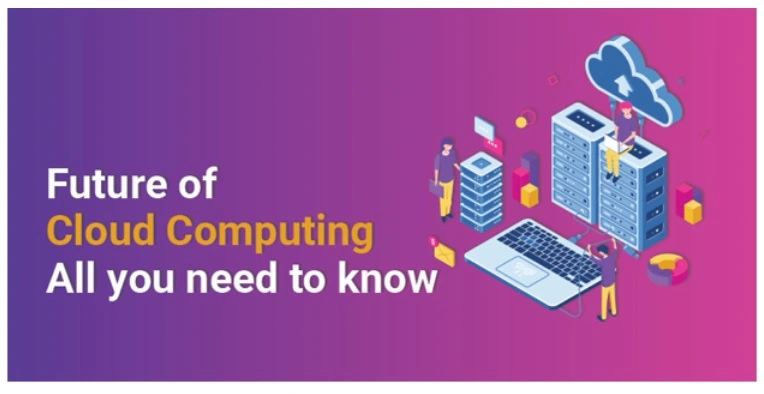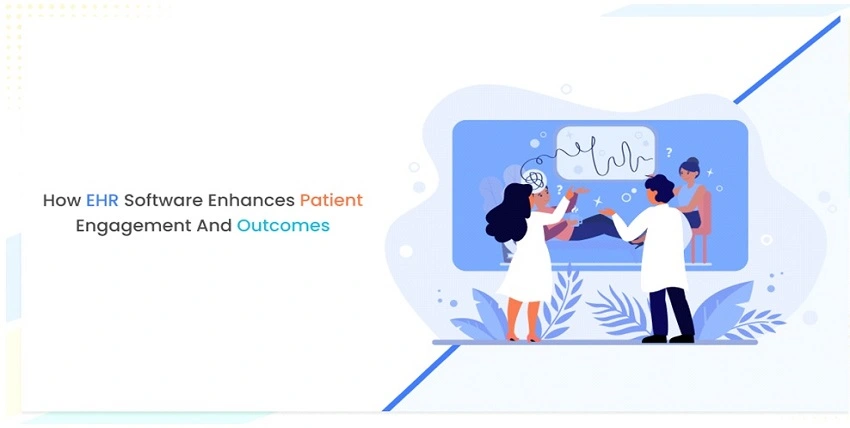Several endless opportunities and possibilities are offered by cloud computing and the technology that supports it.
Cloud computing has the potential to offer up a whole new universe of opportunities in search of employment, resources, infrastructures, apps, and more.
As the future of cloud computing begins to take off, hundreds of more solutions are starting to emerge. With all of these considerations in mind, it’s time to look at the future of Cloud Computing.
Let’s start this blog with a simple question of why the future is based on cloud computing.
Why is Cloud Computing the Future?
Technically speaking, even though technology keeps evolving it may seem like everything is sorted. Yet, there are various shortcomings in the technology, and some of them can be solved with cloud computing.
Conventional infrastructure is incapable of keeping up with the rate at which markets evolve. Allocating adequate support can take several days.
The necessary quantity of cloud services can be acquired in much less than an hour. However, cloud computing can solve this issue with its high speed and flexibility.
It also helps the developers to innovate new technologies. Cloud computing gives the opportunity to become competitive in the business world by developing new products and services fast, assessing their market potential, and putting them into action.
Cloud Computing also offers an advantage in price predicting and fault tolerance services which are definitely going to be needed in the future.
That said, it is really fruitful to upskill yourself with any Cloud Computing training and make the most of the moment.
Now, we are going to figure out the future advancements of cloud computing that will help its users.
1. Cloud Expands Data Storage Capacity
Data is being generated in large quantities today, making secure storage problematic. The majority of businesses demand a secure storage location for their data.
As cloud computing becomes more common, more businesses are opting to store more data on the cloud.
Cloud computing’s future promises a tremendous rise in data storage capacity.
New businesses will be attracted by improved storage technologies and vice versa. This will be a mutually beneficial relationship.
Because there is so much interest in cloud technology, it is expected that cloud service providers will deliver additional data centers at reduced prices as a result of the intense competition.
More people in your organization would be capable of storing information with the help of this storage capacity.
2. Cloud and Internet of Things
Companies are encouraging the use of IoT in every aspect of their business now that every device has access to the global network, which is unsurprising.
Cloud computing can be used by IoT devices because it provides great pace, efficiency, and scalability.
Cloud Computing also provides enough storage equipment to accommodate data safely, locate resources, and communicate information among multiple users in the same location.
There are numerous instances of machine-to-machine interaction, data, and processes. With the advent of cloud computing, we can do it quickly and efficiently.
3. Cloud Computing Going Serverless
Usually, companies spend a significant amount of time on software and services that can grow or rollover. As a result, serverless architecture was created to allow developers to quickly build software and devices.
The platform evaluates how often infrastructure is required constantly before automatically provisioning it to maintain the program or applications.
It allows developers to break the software into chunks of code and upload them to the cloud. This strategy ensures a faster SDLC. Amazon Web Services has already begun to benefit from the serverless paradigm.
4. Cloud Improves Security
Many companies that have adopted cloud computing take cyber security and cyber safety for granted. When it comes to security, the future of cloud computing is obvious.
As more businesses resort to cloud computing, the issue of unquestionable security has become unavoidable.
Although the data saved in the cloud is secure, it is not completely secure. Small businesses that supply cloud services may or may not provide adequate data protection.
As a result, we can better protect ourselves against hackers in the future. Cloud providers provide improved security measures, allowing for a more balanced approach to prevent hacking.
5. Cloud Computing Assists in Automation
Business companies can boost their performance without putting in a lot of money and effort if they use automation.
When it comes to correcting faults in business operations while also simplifying them to produce profitable outcomes, the automation solutions at our disposal have shown to be really useful.
Cloud automation is a wide phrase that refers to procedures and techniques that enable the delivery and operation of cloud computing applications and services by reducing or eliminating the need for manual labor.
Cloud automation can be used in public, private, and hybrid cloud contexts.
Bottom Line
Cloud computing is strong and widespread, and it will keep growing and offer several future benefits. By 2025, it is expected that 80 percent of businesses will have moved to the cloud.
According to the Deloitte annual study, Global cloud expenditure will rise 7x faster than the average IT budget, and sales growth will continue more than 30% for 2021 through 2025 as firms switch to the cloud and thus save budget, are becoming more nimble, and spur innovation.



![itms-appss://apps.apple.com/app/instagram/id389801252?vt=lo [2024] 3 itms-appss://apps.apple.com/app/instagram/id389801252?vt=lo](https://trendingserve.com/wp-content/uploads/2024/06/All-the-Information-You-Require-about-Instagram-on-Apple-Devices.webp)

One thought on “Future of Cloud Computing: All You Need To Know”